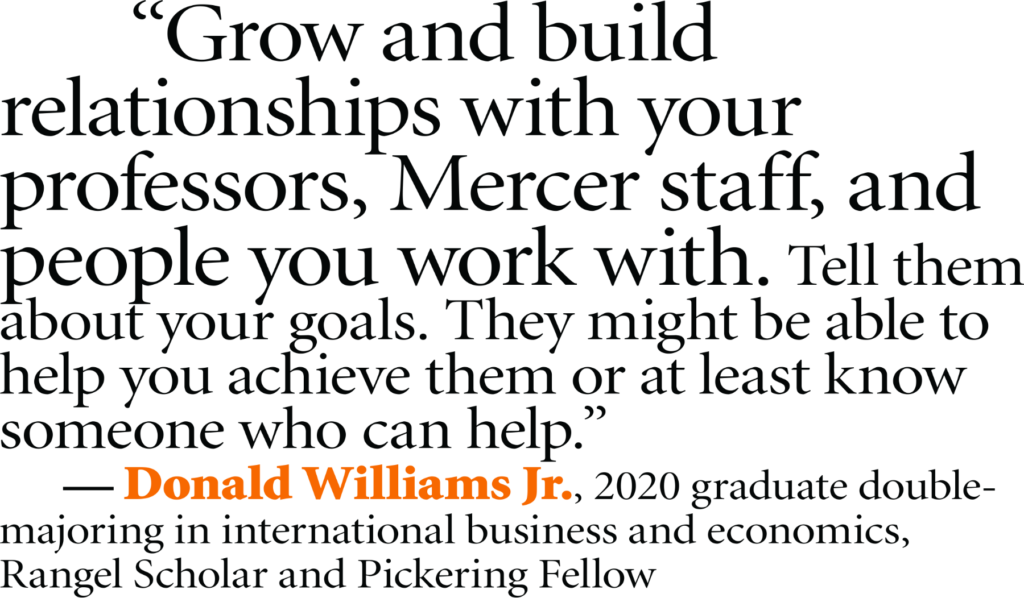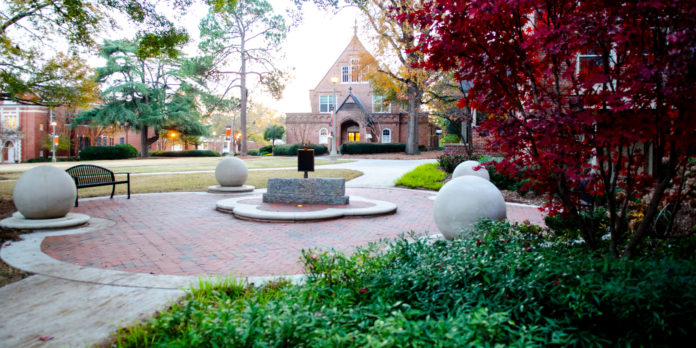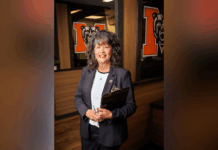Rising senior McPherson Newell is possibly the most-decorated student in a single year at Mercer University.
This year alone Newell was named a Goldwater Scholar, a Newman Civic Fellow, a Truman Scholarship finalist, and a Marshall Scholarship finalist.
Even more impressive is the fact that the Barry M. Goldwater Scholarship and Truman Scholarship are wildly different awards. The Goldwater recognizes excellence in science, mathematics and engineering while the Truman supports public service.
“To even be considered for both at the same time takes a really exceptional person,” said Dr. Cameron Kunzelman, coordinator of fellowships and scholarships.
For Newell, a biomedical engineering major, it all started with a decision to apply for the Research Experiences for Undergraduates program.
Newell was accepted into the rehabilitation engineering program at Cleveland State University.
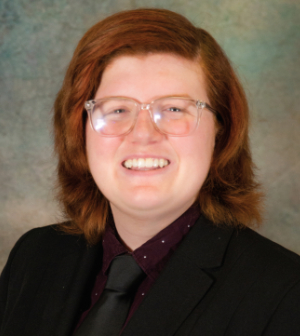
“That was a really transformative experience,” said Newell, who plans to pursue an M.A. in disability studies, a Ph.D. in biomedical engineering and a professorship in rehabilitation engineering. “It taught me a lot academically but also just really increased my confidence in the foundation and skill sets that I already learned at Mercer and in my ability to do what I wanted to with my life.”
That’s how it goes for many high-achieving students at Mercer. One success leads to another success.
“We’re now competing with the top universities in the country for the most prestigious awards,” said Dr. David A. Davis, associate professor of English and director of fellowships and scholarships.
These accomplishments were made possible with the help of Mercer’s expert faculty and staff, who provide an unparalleled level of guidance and mentorship to students.
Committed to student success
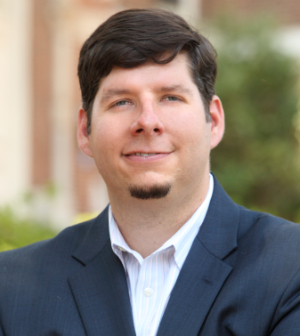
Mercer has a dedicated team committed to students’ success in achieving scholarships, fellowships and other opportunities in the Office of Fellowships and Scholarships, which advises students interested in competing for externally-funded awards.
“We want to maximize the value of a student’s Mercer education by aligning their classroom experiences with engaged learning experiences and externally funded opportunities for development,” Dr. Davis said.
Not only does the office offer information sessions and workshops about available opportunities, but staff members also give one-on-one support and guidance. These individualized conversations result in students walking out of the office with a list of several opportunities for them to seriously consider. Once a student decides to apply, he or she gets personal support in the application process.
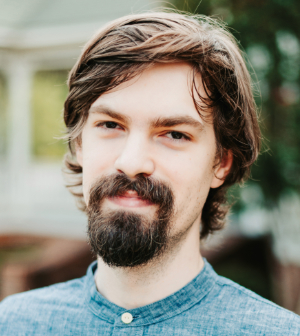
“Each application has its own nuances, its own learning curves, and we don’t want the students to face that alone,” Dr. Davis said. “We give them feedback on their applications, and we make sure applications are completed on time.”
Dr. Kunzelman, a Mercer alumnus who graduated in 2012, joined the Office of Fellowships and Scholarships in January 2019. Adding his position was part of a strategic push to increase the number of awards applications from Mercer students.
“What I’ve learned is if you make the opportunities known to our students, there are students for every opportunity possible,” he said. “The vast majority of our advising happens sitting in our offices and just figuring out what a student wants to be doing with their life and figuring out what the opportunity is for that.”
Faculty offer personal connection
Beyond the Office of Fellowships and Scholarships, students enjoy close, personal relationships with their professors, who guide and position them for success.
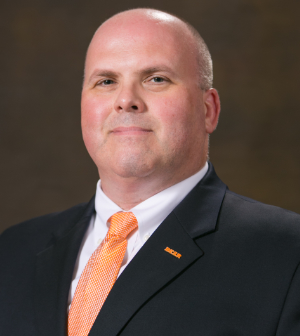
“This is a place where personal mentorship that students get from their faculty members is really important,” Dr. Davis said. “Students who have engaged learning opportunities early in their academic experience perform better in these national and external awards.
“So the fact that we, frankly, overachieve in these competitions is a testament to that personal connection in the classroom.”
That connection is forged, in part, due to Mercer’s close-knit environment.
“Because of our class size and the way that faculty engage with students, we’re often able to identify those high-performing students very early and give them some of those opportunities that they might not otherwise get until their junior or senior year,” said Dr. Garland Crawford, an associate professor of chemistry who has mentored many award-winning students, including a Goldwater Scholar.
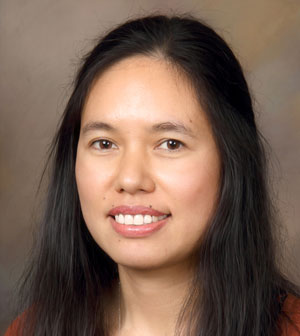
That could mean working on material with them in the lab, pushing students beyond their current abilities and what they’ve covered in class, he said.
Dr. Makhin Thitsa meets with her research students outside of class and assigns extra readings for background knowledge not traditionally covered in the undergraduate curriculum. Once the students are well-versed in the material, she treats them the way a Ph.D. adviser would treat doctoral candidates.
“Especially, when I am sending sophomore or junior students to highly selective international conferences, where most attendees are professors or at least Ph.D. candidates, I need to prepare my students impeccably well to withstand any scrutiny,” said Dr. Thitsa, an associate professor in the Department of Electrical and Computer Engineering who has mentored several Mercer Goldwater Scholars.
Support outside the classroom
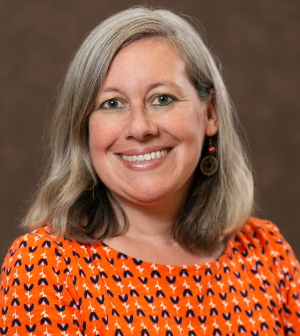
Many of these interactions happen outside of the classroom, whether in a laboratory, during office hours, or over coffee.
When working on a tight deadline with two students applying for a Critical Language Scholarship, Dr. Amy Nichols-Belo, an associate professor of global health studies and anthropology, would stay late giving them feedback.
“We were in my office until 10 o’clock, 11 o’clock at night,” she said. “They would write a draft. I would immediately critique it because I thought they both had a really good shot.”
One of those students, 2019 graduate Anastasia Winfield, became the first student from Mercer to win the scholarship. She went to Tanzania to study Swahili for two months and then returned to the country with Dr. Nichols-Belo and Dr. Natalie Bourdon, an associate professor of women’s and gender studies, as a participant in Mercer On Mission.
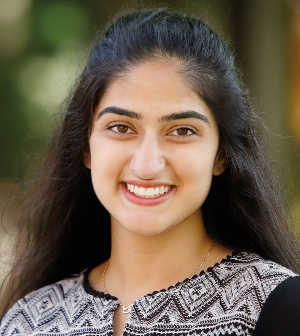
The other student, Hoor Qureshi, did not get the award that year, but she said she learned a lot about herself in the process. She went on to receive a Critical Language Scholarship in a subsequent year and was a semifinalist for a Fulbright. The 2019 graduate who majored in global health studies and global development studies has since served in the Peace Corps in Botswana.
Qureshi said her professors “were tremendously helpful and supportive” through the awards process. “Even now, they’re helpful to this day.”
Dr. Nichols-Belo also mentors students through her membership on Mercer’s Fulbright Screening Committee. The committee has a more structured mentoring process by which faculty and staff help students develop their applications and write powerful narratives.
The process can be arduous — students write three drafts over the summer months and at least three more during the month of September — but faculty and staff are there to help at each stage of the process.
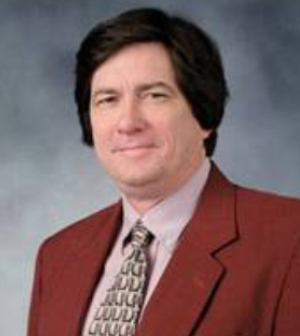
“Our mission is to make sure all components of the application read well and the student covers all the bases she needs to cover,” said Dr. Edward J. Weintraut, professor of German and head of the Fulbright Screening Committee.
The mentoring that students find at Mercer is unlike that of many other colleges. A Mercer faculty member might put in as many as 20 hours of work with a student applying for a Fulbright.
“But at a large research institution, nobody has that much time for an undergraduate,” Dr. Nichols-Belo said. “As a graduate student, I barely got the attention that I give my undergraduate students.”
Dr. Thitsa also noticed the difference.
“When I was an undergraduate, I could not find a faculty mentor who was interested in training an undergraduate — their focus was more on graduate students. I noticed the same trend in a few other universities,” she said. “Mercer definitely is unique in that sense — here, successful research programs are being developed and undergraduate students get to be at the front and center of them.
“Currently in my lab, I have a research student who turned down Harvard and came to Mercer precisely for this intimate one-on-one faculty-student mentorship in undergraduate research.”
So much to gain
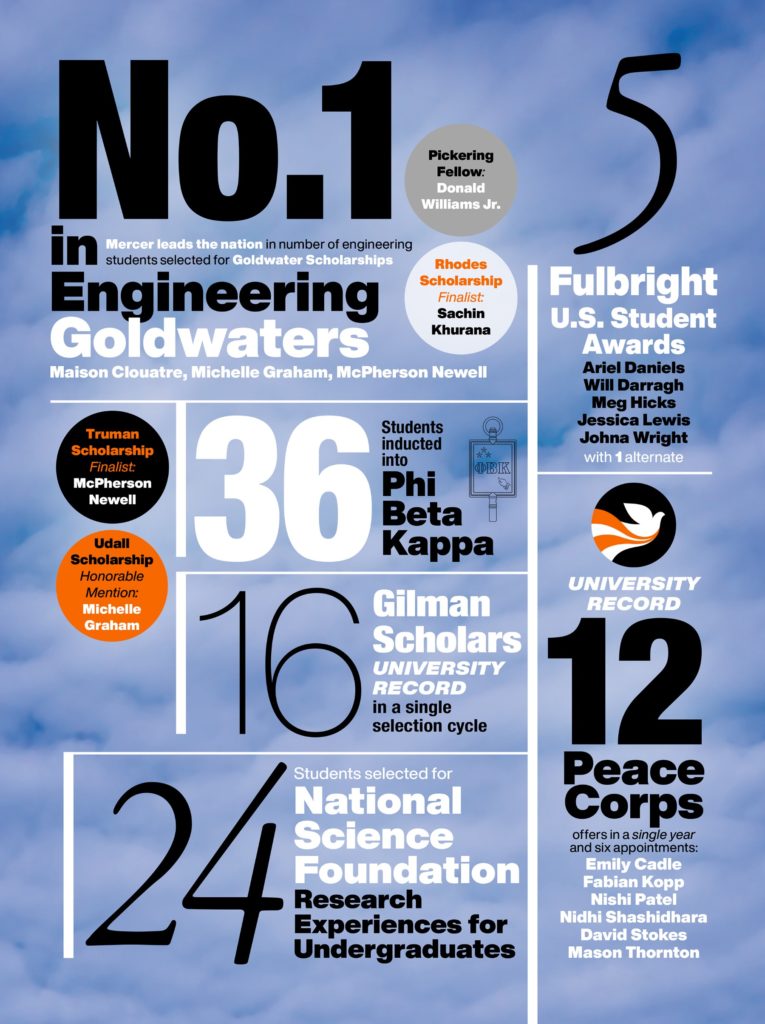
Students who participate in these distinguished programs come away with three key benefits, Dr. Davis said.
First, they’re going to take away the value of the program itself, whether it’s the international, internship or research experience.
Second, they’re going to demonstrate their viability on a national scale because they have competed against the best students in the country.
Third, they’re going to come away with the prestige of having participated in a significant national opportunity.
But it doesn’t take winning an award to gain something from the experience.
“Just by applying, the students have significant developmental growth,” Dr. Davis said. “They learn how to describe their academic interests and to develop a trajectory of achievement, a sense of what their goals are, and what’s appropriate for them to think about next.”
And students who apply for one award will often find they are well prepared to pursue another.
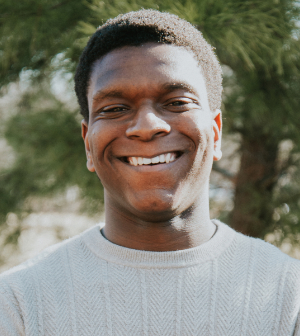
Take, for instance, Donald Williams Jr., a 2020 Mercer graduate who double-majored in international business and economics and is working to become a U.S. Foreign Service Officer.
A scholarship-funded study abroad experience in Spain helped put his career path into focus.
“(The Benjamin A.) Gilman (International Scholarship Program) and the Fund for Education Abroad, which are the two scholarships that helped me study in Spain, exposed me to international careers,” Williams said.
“The Fund for Education Abroad was especially helpful because I met graduate students who were already on the Foreign Service path I was preparing to take. Meeting and speaking with them is really what solidified, in my mind, that this is a viable path for me.”
Williams then was selected for the Charles B. Rangel International Affairs Summer Enrichment Program in Washington, D.C., where he spent his days immersed in classes and excursions that expanded his knowledge of U.S.-international relations and improved his own skills needed to become a foreign service officer. In 2019, he received the prestigious Thomas R. Pickering Foreign Affairs Fellowship to pursue a master’s degree in international economic policy at The George Washington University.
“My experiences have truly curated my current academic and professional plans,” he said.
